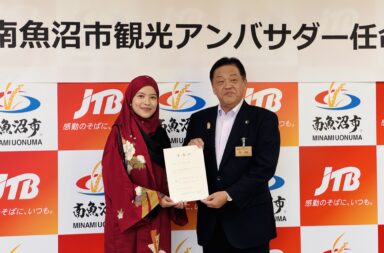This post is also available in: Indonesia
Fasting in countries brings out interesting experiences, from fasting duration to adaptation. Fasting in Japan has a duration of 16 hours and Ramadhan usually falls in early summer which already hot and humid. Meanwhile, countries close to the equator might have a shorter time of fasting duration and hotter temperature than Japan.
Today we talk to Ana Farhana, a Japanese Muslimah who shares with us her experiences in fasting in Japan and Malaysia.
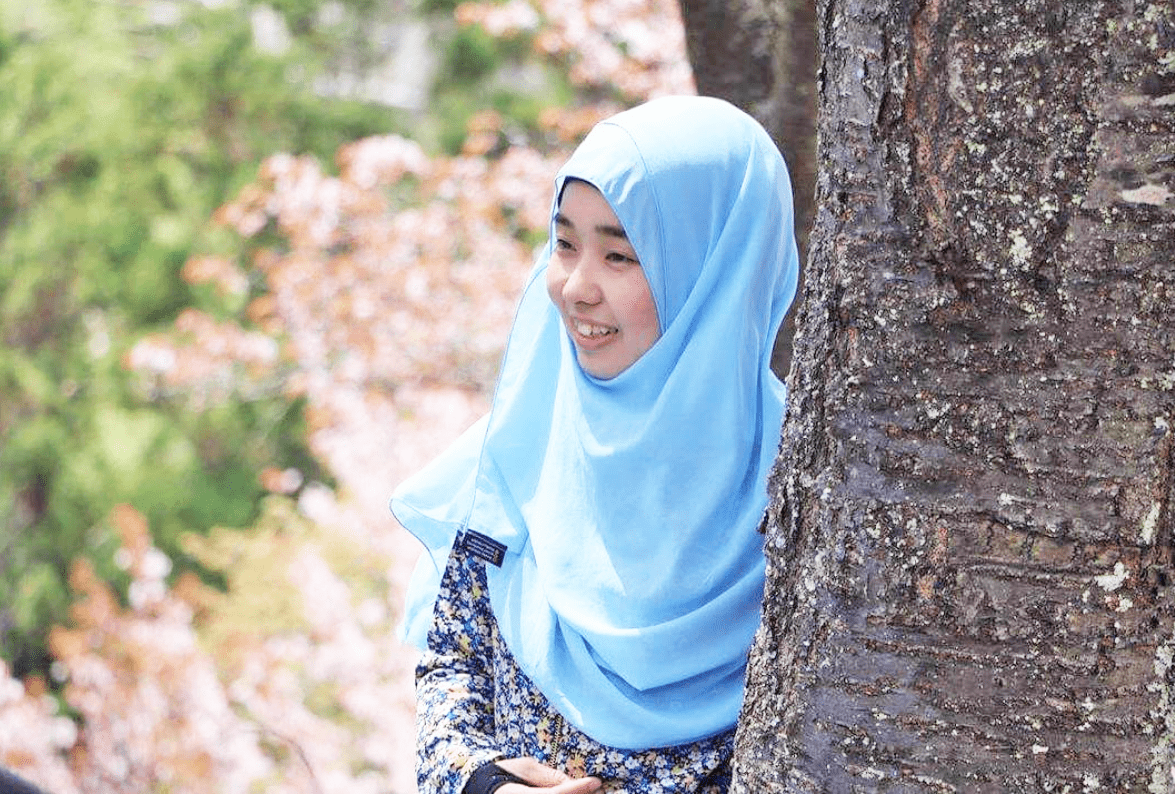
Meet Ana, a Japanese Muslimah Living in Malaysia
Tanaka Ana is a Japanese revert who made her shahadah in Japan in 2016, and has Islam name “Ana Farhana”. She came from Nara Prefecture in the Kansai area, who is married to a Malaysian and now living in Selangor, Malaysia since 2019.
View this post on Instagram
Besides as a Japanese native (also Kansai dialect native!), Ana is a Bahasa Melayu speaker that makes her easily make friends and interact with Malaysians.
View this post on Instagram
View this post on Instagram
See Also
Ramadhan in Japan; How Muslims in Japan Prepare for Ramadhan This Year(2021)
How Does It Like Fasting in Japan and Malaysia?
In her case, she found it difficult to properly do fasting in Japan. At that time, she was working at a daycare that needs a lot of energy both physically and mentally, and the policy at her workplace where teachers and kids have to eat lunch together. Furthermore, it was hard for her to arrange the time to having suhoor and iftar as she didn’t mention to her family that she was fasting. She mentions that at one time, she purposely going back home late than usual so that she can finish iftar outside without her family’s need to know.
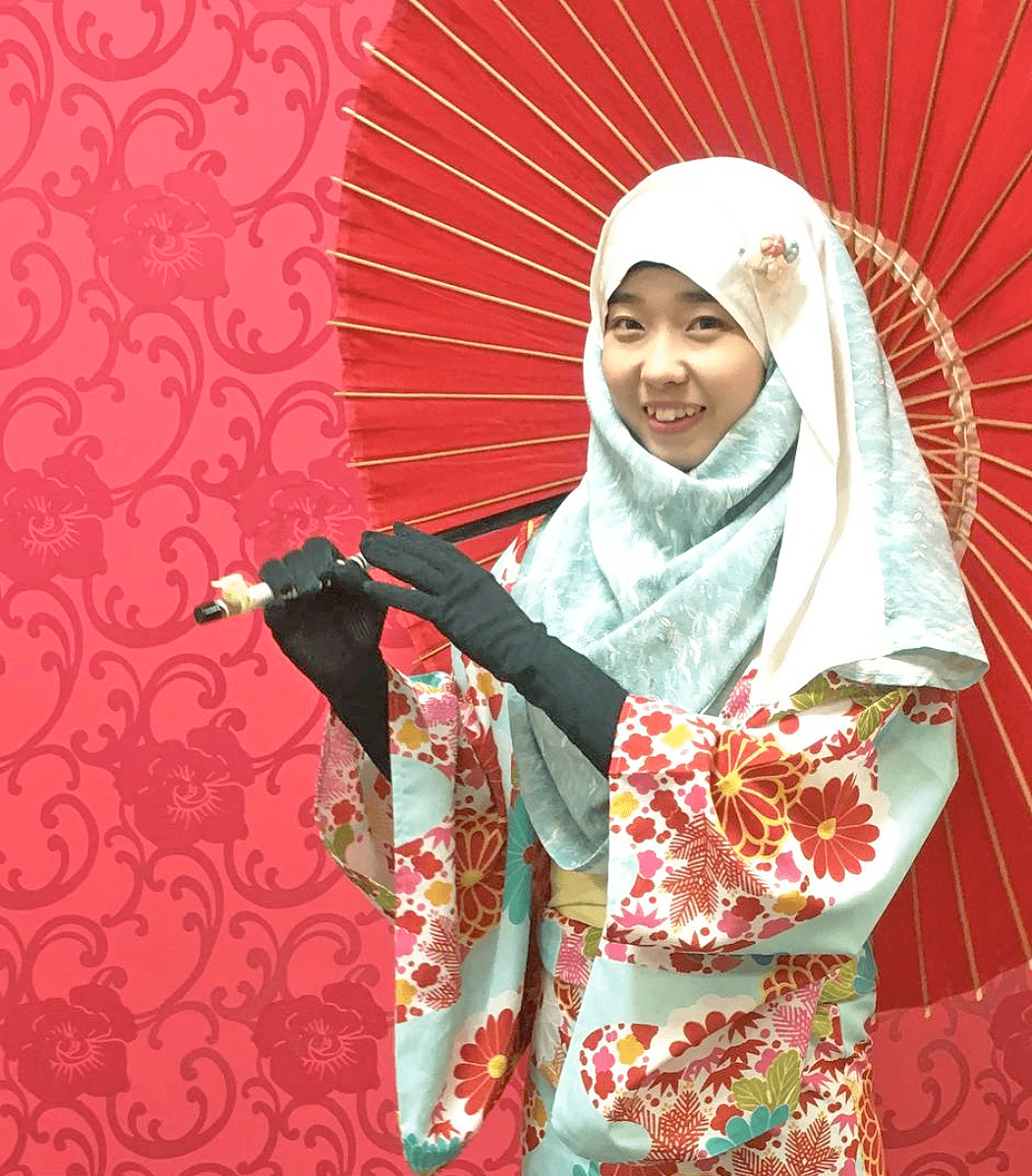
Then, she quit the job and started working as a part-time daycare teacher who allows her to manage her own time. She found it way easier to do fasting as a part-timer because working time is comparatively flexible.
If she used to do fasting alone by herself in Japan, she can comfortably fast together with other Muslims in Malaysia, as it is one of the Muslim-majority countries, and with her husband by her side, that gives her a lot of advice and supports her to do her best in doing fast.
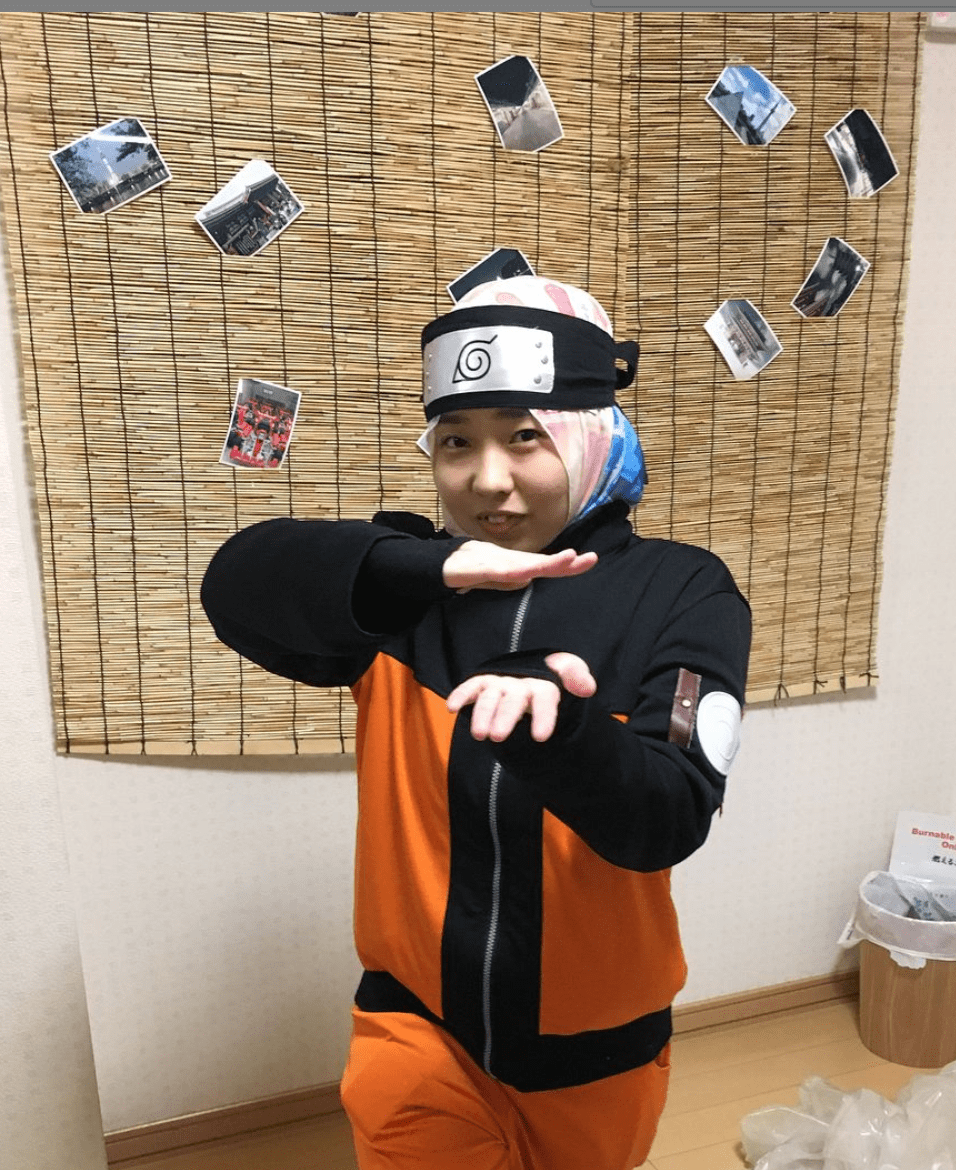
On the other hand, she found it difficult (which sometimes scary!) to eat outside during Ramadhan when it’s okay not to fast in Malaysia because of the gaze from people. Meanwhile, in Japan, there is no such thing since people are doing everything just like every day even in Ramadhan.
We believe that this experience is not only Ana’s, those who do not fasting for some reason hesitate to eat outside because people will talk about them or gaze at them that makes people uncomfortable. We hope that those who are exempt from fasting can comfortably eat outside without hesitation like in other countries.
According to Ana, she usually gets a headache or stomachache like a week before Ramadhan starts, but Alhamdulillah, she can overcome it and doing fasting peacefully now.
See Also
Fasting in Japan: A Day of Indonesia-Japan Family Fasting in Ramadhan 2021
Fasting in Japan: The Famous Muslim Indonesian Beauty Blogger and Family Celebrating Ramadan 2021 in Japan
Activities During Ramadhan
In Malaysia, Ana wakes up at around 5 o’clock for suhoor and is followed by Fajr pray. After that, she listens to Islamic lectures online or reads articles.
In a day, she mentions that she does activities just like usual, but she tries to focus more on pray. She found her self-control is improving year by year.
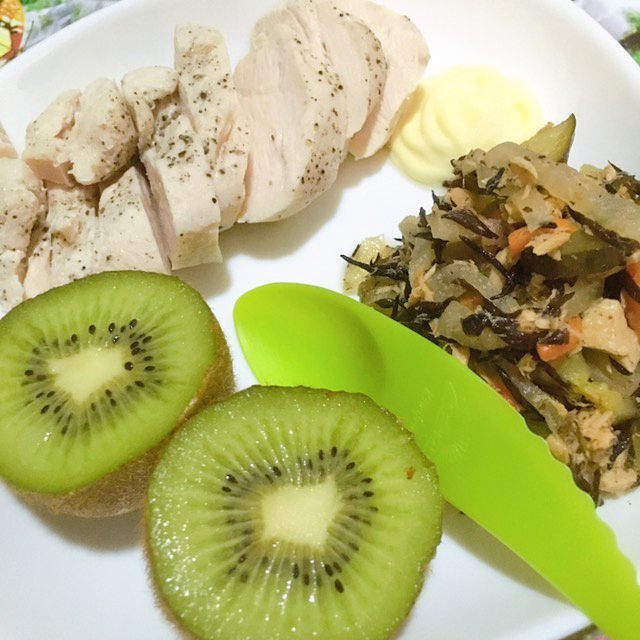
Ana’s suhoor meals (with rice)
Before the pandemic, there was Ramadhan Bazaar held in Malaysia and it was one of her joys to do shopping there. Also, she was so excited to join iftar and Taraweeh at the mosque every day.
She can’t wait to enjoy the bazaar and activities at the mosque again soon when the pandemic settles!
If most are having fried or spicy foods for iftar and dinner, Ana prefers to have Japanese food or Western food. In terms of food, Ana is careful about food amount to not waste food, especially in Ramadhan. After enjoying the food and finish the Taraweeh prayer, sometimes Ana listens to an online lecture brought by Ustadz or gets herself more relax by listening to nasheed, religious recitations recited in various melodies without any musical instruments.
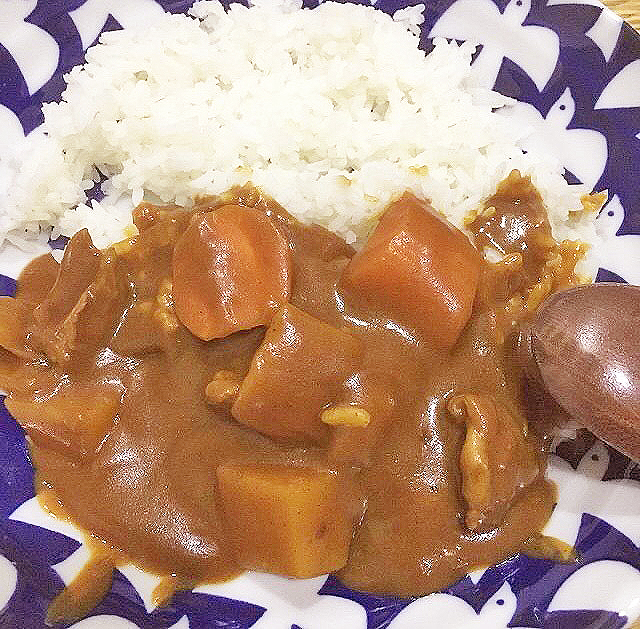
Japanese curry for iftar
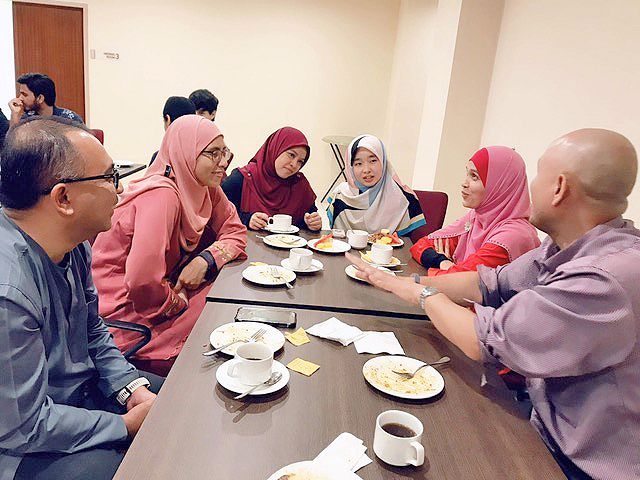
Ana enjoys iftar with friends
See Also
Iftar Meals in Halal Restaurants in Japan
Break Your Fast With These 3 Japanese Traditional Foods & Drinks For a Fascinating Iftar Time (Ramadhan 2021)
Her first Ramadhan was tough, she says. She was surprised at how hungry and thirsty she is during fasting that led her to a poor physical condition. At that time, she was overwhelmed by how Muslims are doing fasting every year for a month! After years of doing it, the body got used to it and gives her a stronger will in fasting.
See Also
Fasting in Japan: Japanese Muslim’s A Day of Fasting in Ramadhan 2021
Lessons in Ramadhan
Ramadhan brings lessons to everyone. For Ana, Ramadhan gives her a chance to be a better Muslim. There are a lot of people who are unfortunate to have some food and fasting reminds her to be grateful for the food we have. Moreover, it encourages Ana to helps people in need.
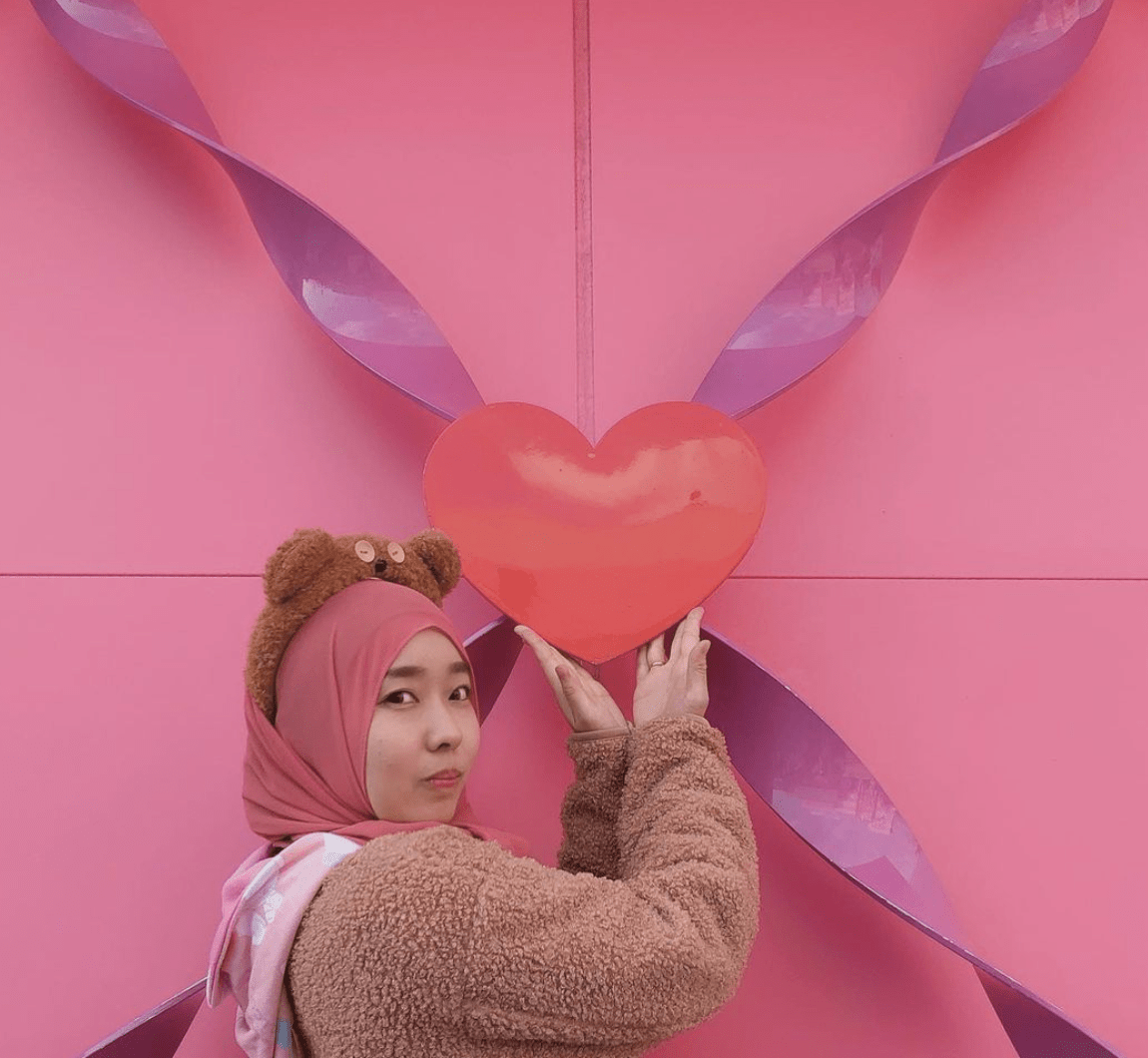
How She Learns Shalat and Reads Al-Qur’an
Thanks to this digital era, Ana can learn how to shalat from Youtube and books.
It is not easy to learn Arabic, especially pronunciation. Ana remembers Arabic from sounds and learns how to read from Katakana. Jama’ah’s prayer is very helpful for her as she can remember the Arabic words by listening.
See Also
Must See! This is How to Proceed Reverting to Islam in Japan (Mu’allaf)
First Eid Adha Prayer for a New Japanese Muslim
